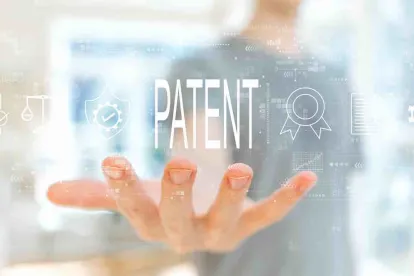Holding
In Covidien LP v. Brady Esch, 2021 U.S. App. LEXIS 10155 (Ct. App. First Circuit, April 8, 2021), the Court of Appeals for the First Circuit (Judges Howard, Thompson, and Gelpí) affirmed the district court’s denial of Covidien’s post-trial declaratory judgment request that Esch assign any “Inventions” described in Esch’s patent applications to Covidien.
Background
Esch worked in the field of varicose vein treatment for VNUS Technologies, which was acquired by Covidien in 2009. Esch signed a Non-Competition, Non-Solicitation, and Confidentiality Agreement in 2009. This 2009 Agreement included a clause requiring Esch to “disclose to Covidien all ‘Inventions’ created during his employment with the company or within one year after leaving the company.” “Inventions” was broadly defined in the Agreement. The Agreement also contained the following assignment clause:
[Esch] agree[s] that all Inventions that are, or are deemed to be, made or conceived by [him] during employment with the Company shall, to the extent permitted by law, be the exclusive property of the Company and [he] hereby assign[s] to the Company [his] entire worldwide right, title, and interest in and to any and all such Inventions.
In 2013, Esch was terminated and signed a Separation of Employment Agreement and General Release, which contained provisions indicating that nothing therein superseded the 2009 Agreement.
In February 2014, Esch formed a new company, Venclose, Inc., to make and sell a device to treat varicose veins. In March 2014, Esch filed U.S. Provisional Patent Application No. 61/970,498 (“the ‘498 Provisional Patent Application”) which described the design, technology, and improvement of venous RF ablation devices. In 2015, Esch and several other inventors filed a U.S. non-provisional application, Application No. 14/670,338 (“the ‘338 Patent Application”) and a PCT Application, PCT/US2015/022849 (“the PCT Patent Application”), and recorded an assignment of all of the inventors’ rights in the ’338 Patent Application to Venclose.
In November 2016, Covidien sought a declaratory judgment ordering Esch to assign his rights, title, and interest in the three patent applications to Covidien. Additionally, Covidien alleged Esch breached his obligations under the 2009 and 2013 Agreements by failing to disclose “Inventions” and by disclosing “Confidential Information.”
District Court Decision
Using a special verdict form, the jury concluded that Esch breached his confidentiality obligations to Covidien under the 2009 and 2013 Agreements and awarded Covidien $794,892.24 in damages, but also concluded that Esch did not breach his obligation to disclose “Inventions” to Covidien or his covenant of good faith and fair dealing.
Having found no breach of the obligation to disclose “Inventions,” the jury followed the special verdict form’s instructions to leave unanswered additional questions regarding “Assignment of ‘Inventions,’” including questions specific to the ’498 Provisional Patent Application, the ’388 Patent Application, and the PCT Patent Application.
Post-trial, Covidien moved for declaratory judgment and other relief, requesting that Esch be required to assign to Covidien any “Inventions” described in the three Venclose patent applications. The district court denied Covidien’s request for post-trial declaratory judgment, reasoning it was inconsistent with the jury’s verdict. The district court explained:
“[t]o agree with Covidien’s logic, the jury would have had to reach the inconsistent conclusion that Esch’s publication of Covidien’s confidential information in the ’338 Patent Application was simultaneously a breach of confidentiality and in satisfaction of his duty to disclose Inventions to Covidien.” Covidien LP v. Esch, 427 F. Supp. 3d 152, 157 (D. Mass. 2019).
Covidien, 2021 U.S. App. LEXIS 10155 at *11.
[T]he jury’s “decisive” negative answer to Question 3 [(whether Esch breached his obligation to disclose “Inventions” to Covidien under the Employment Agreement)] could only be read as a factual finding that no “Inventions” were made that are encompassed under the Employment Agreement.
Id. at *11-12.
Court of Appeals’ Decision
The Court of Appeals affirmed the district court’s denial of Covidien’s post-trial request for declaratory judgment.
According to the Court, there was no reversible error in the special verdict form. While Covidien argued the jury should have been required to answer the additional questions specific to the ’498 Provisional Patent Application, the ’388 Patent Application, and the PCT Patent Application, even having found no breach of the obligation to disclose “Inventions,” the Court disagreed:
The special verdict form was reasonable and logically redacted and explicitly indicated that Question 3 must be answered “under the terms of the Employment Agreement.” This unmistakably directed the jury to consider and weigh the evidence presented during trial according to the terms of the entire Employment Agreement, including both the disclosure and assignment obligations detailed in Section II.
Id. at *19.
The Court also agreed with the district court’s interpretation of the jury’s unanswered additional questions:
The verdict can only be consistently interpreted as determinative that Esch’s compliance with his duty to disclose any potential “Invention” implies that no “Inventions” were made under the Employment Agreement’s term. If there were no “Inventions,” then there was no need to answer [the additional questions].
Id. at *21.
The Court rejected as “waived” Covidien’s argument that “it was legally impossible for Esch to fulfill his duty of disclosure by violating his duty of confidentiality.” Id. at *23.
On April 22, 2021, Covidien petitioned the Court of Appeals for the First Circuit for rehearing and rehearing en banc. According to Covidien’s petition, “[t]he panel’s published opinion conflicts with settled case law, wrongly accuses Covidien of waiver, and ignores Covidien’s alternative argument that the record entitles it to judgment as a matter of law.” Covidien Petition, at *1. Covidien asserts that the district court should have reviewed the evidence itself and determined the factual dispute of inventorship. The Petition explains: “The result is that no decisionmaker—not the jury, not the district court, and not the panel—has considered the actual merits of Covidien’s declaratory judgment claim in light of the unequivocal trial evidence. Covidien—like every other litigant—is entitled to a decision on the merits of the arguments it presented.” Id. at *3.
Take-Away
In the U.S., inventorship determines ownership. But inventors may grant their rights to other parties through contracts that are governed by state and local laws. The modern workforce is very fluid—employees come and go frequently across technological fields. Care must be taken with contractual language in employment and separation agreements. The language of such agreements may be scrutinized during an internal portfolio review, a due diligence investigation, or, as in this case, a litigation. Care must also be taken with jury instructions and special verdict forms during litigation to ensure the jury makes any factual findings needed to support post-trial motions or appeal.





 />i
/>i

